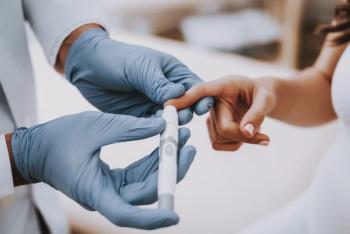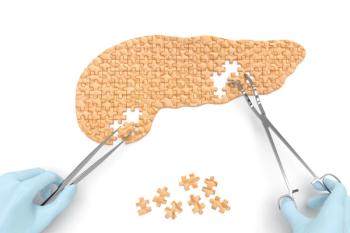
FDA Requests Black Box Warning for Approved CAR-T Therapies Over Secondary Cancer Concern
As per US law Section 505(o)(4), the manufacturers are required to make the requested changes, respond with a modified version of the requested changes for review, or respond with a rebuttal within 30 days of the FDA's ask.
UPDATE: January 24, 2024, 10:07 AM — The FDA's letter to Kite Pharma regarding brexucabtagene autoleucel (marketed as Tecartus) has been updated on the FDA's website with revised language. In the letter, the FDA notes that the revision—dated January 23, 2024—supersedes the original language. References to T-cell malignancies having occurred following treatment with Tecartus specifically have been removed with the warnings now simply referring to BCMA- and CD19-directed genetically modified autologous T-cell immunotherapies in general. Notably, the boxed warning now reads: "T-cell malignancies have occurred following treatment with BCMA- and CD19- directed genetically modified autologous T-cell immunotherapies."
January 23, 2024 — The FDA has requested that black box warnings related to secondary cancer risks be added to all 6 of the chimeric antigen receptor T-cell (CAR-T) therapy products currently approved by the agency for use in the United States.1-6 The FDA issued separate letters to each of the relevant companies for the therapies on January 19, 2024. These CAR-T products target either the antigen CD19 or B-cell maturation antigen (BCMA).
These products include Bristol Myers Squibb (BMS) and 2seventybio’s
The language of the requested warnings takes the following form and is to be included as a Boxed Warning, noting that “T-cell malignancies may occur following treatment with BCMA- and CD19-directed genetically modified autologous T-cell immunotherapies,” with each product’s name listed in the letter. The agency also requests additional references to T-cell malignancies be added to the 'WARNINGS AND PRECAUTIONS' sections of for each of the 6 CAR-T products' labels: “T cell malignancies have occurred following treatment with BCMA- and CD19-directed genetically modified autologous T-cell immunotherapies, including [product name]. Mature T-cell malignancies, including CAR-positive tumors, may present as soon as weeks following infusion, and may include fatal outcomes.”
As per US law Section 505(o)(4), the companies are required to make the requested changes, respond with a modified version of the requested changes for review, or respond with a rebuttal within 30 days of the letters’ issuance. The changes are deemed to constitute new safety information by the agency.
“Since [the product was approved], we have become aware of the risk of T-cell malignancies, with serious outcomes, including hospitalization and death, following treatment with BCMA- and CD19-directed genetically modified autologous T-cell immunotherapies,” Nicole Verdun, MD, the director of the Office of Therapeutic Products within the FDA’s Center for Biologics Evaluation and Research, the signed author of the letters, wrote in each.1-6 “FDA identified postmarketing adverse event and clinical trial reports describing [the] occurrence of mature T-cell malignancies, including CAR-positive tumors, following treatment with BCMA- and CD19-directed genetically modified autologous T-cell immunotherapies... Furthermore, we consider the serious risk of T-cell malignancy to be applicable to all BCMA- and CD19-directed genetically modified autologous T-cell immunotherapies.”
Several months ago, in November 2023, the FDA announced that
References
1. Safety Labeling Change Notification Letter - ABECMA (idecabtagene vicleucel). News release. FDA. January 19, 2024. Accessed January 23, 2024. https://www.fda.gov/media/175623/download?attachment
2. Safety Labeling Change Notification Letter - BREYANZI (lisocabtagenemaraleucel). News release. FDA. January 19, 2024. Accessed January 23, 2024. https://www.fda.gov/media/175622/download?attachment
3. Safety Labeling Change Notification Letter - CARVYKTI (ciltacabtagene autoleucel). News release. FDA. January 19, 2024. Accessed January 23, 2024. https://www.fda.gov/media/175624/download?attachment
4. Safety Labeling Change Notification Letter - KYMRIAH (tisagenlecleucel). News release. FDA. January 19, 2024. Accessed January 23, 2024. https://www.fda.gov/media/175625/download?attachment
5. Safety Labeling Change Notification Letter - TECARTUS (brexucabtagene autoleucel). News release. FDA. January 19, 2024. Accessed January 23, 2024. https://www.fda.gov/media/175626/download?attachment
6. Safety Labeling Change Notification Letter - YESCARTA (axicabtagene ciloleucel). News release. FDA. January 19, 2024. Accessed January 23, 2024. https://www.fda.gov/media/175627/download?attachment
7. FDA investigating serious risk of T-cell malignancy following BCMA-directed or CD19-directed autologous chimeric antigen receptor (CAR) T cell immunotherapies. News release. FDA. November 28, 2023. https://www.fda.gov/vaccines-blood-biologics/safety-availability-biologics/fda-investigating-serious-risk-t-cell-malignancy-following-bcma-directed-or-cd19-directed-autologous?utm_medium=email&utm_source=govdelivery
Newsletter
Pharmacy practice is always changing. Stay ahead of the curve with the Drug Topics newsletter and get the latest drug information, industry trends, and patient care tips.























